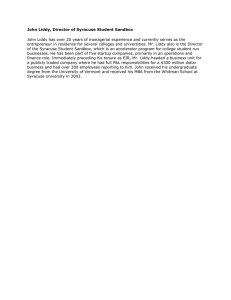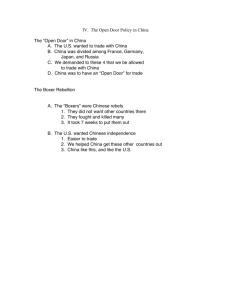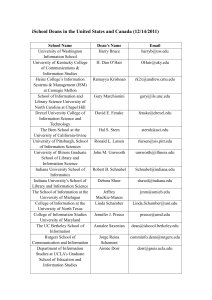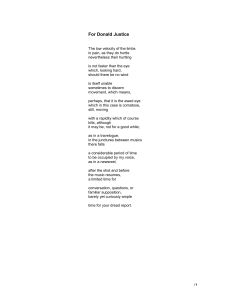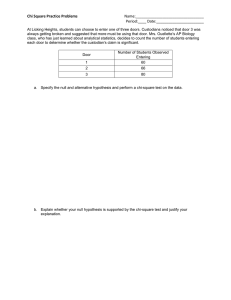Word Doc
advertisement
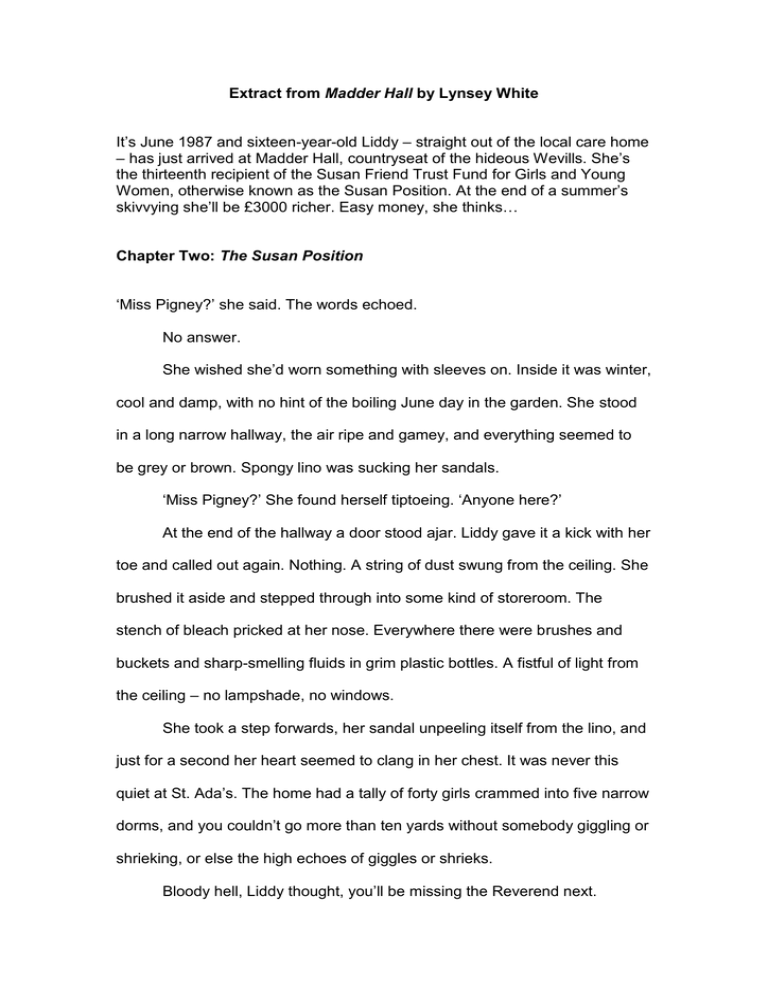
Extract from Madder Hall by Lynsey White It’s June 1987 and sixteen-year-old Liddy – straight out of the local care home – has just arrived at Madder Hall, countryseat of the hideous Wevills. She’s the thirteenth recipient of the Susan Friend Trust Fund for Girls and Young Women, otherwise known as the Susan Position. At the end of a summer’s skivvying she’ll be £3000 richer. Easy money, she thinks… Chapter Two: The Susan Position ‘Miss Pigney?’ she said. The words echoed. No answer. She wished she’d worn something with sleeves on. Inside it was winter, cool and damp, with no hint of the boiling June day in the garden. She stood in a long narrow hallway, the air ripe and gamey, and everything seemed to be grey or brown. Spongy lino was sucking her sandals. ‘Miss Pigney?’ She found herself tiptoeing. ‘Anyone here?’ At the end of the hallway a door stood ajar. Liddy gave it a kick with her toe and called out again. Nothing. A string of dust swung from the ceiling. She brushed it aside and stepped through into some kind of storeroom. The stench of bleach pricked at her nose. Everywhere there were brushes and buckets and sharp-smelling fluids in grim plastic bottles. A fistful of light from the ceiling – no lampshade, no windows. She took a step forwards, her sandal unpeeling itself from the lino, and just for a second her heart seemed to clang in her chest. It was never this quiet at St. Ada’s. The home had a tally of forty girls crammed into five narrow dorms, and you couldn’t go more than ten yards without somebody giggling or shrieking, or else the high echoes of giggles or shrieks. Bloody hell, Liddy thought, you’ll be missing the Reverend next. As she went out the door she was sure she heard footsteps. She paused for a moment. She’d come to another dim hallway with none of the lights on and right at the end, sunk in shadow, she saw the sharp foot of a staircase. The wood creaked and moaned. There was somebody scampering down it – those delicate footsteps she’d heard from the door – and whoever was coming was muttering under her breath as she came. Liddy watched her emerge from the shadows: her feet, first of all, in black pumps, and then frail puny legs in the kind of tan tights Matron wore. When the rest of her bobbed into view she looked young – not much older than Liddy – and swamped by an old-fashioned uniform: black dress and flouncy white apron. Her hair was worn loose, a limp flap of it draped across one of her cheeks. She had small dogged eyes. ‘I’ve been ringing the bell,’ Liddy said. ‘No one came.’ If the maid was surprised, she did nothing to show it. She didn’t move into the hall, though; she stayed where she was, with a hand on the stair rail, her eyes fixed on Liddy. ‘You know we’ve a guard dog? I’ve only to whistle.’ ‘Go on, then.’ ‘Aye, well, in a minute,’ she said, her voice shrill. ‘I’ll give you a chance first to say who you are.’ Liddy shrugged off her bag. ‘I’m the skivvy,’ she said, ‘from St. Ada’s.’ She fished out the letter the Reverend had given her: PRIVATE. ADDRESSEE ONLY. ATTN. MISS PIGNEY. She’d steamed off the glue with the common room kettle that morning and had a quick peek at the contents. A few bits of deadly dull paperwork: medical history, school report, birth-date. ‘I’m not wearing that by the way,’ Liddy said as the maid edged towards her and snatched at the envelope. ‘Nobody said there’d be uniforms.’ ‘Nobody said to be two hours late! You were due at midday.’ ‘Yeah, the Reverend was meant to be—’ ‘Don’t waste your breath, it’s not me you’ve to tell.’ The maid held up a chapped-looking hand, the sort Matron called dishpan. ‘I’ll go for Miss Pigney and see if you’re wanted. You’ll have to wait here.’ ‘I’ll come too,’ Liddy said. ‘You’ll wait here like I’ve told you!’ The maid tucked the envelope into her apron and, turning around on her little black pumps, she went scampering back up the stairs. There was no clock in sight in the hallway, but Liddy had waited a good twenty minutes, she reckoned, before she got bored and gave up. She’d tried one or two doors and found nothing exciting – more storerooms, a laundry – then slumped in a chair for a while with her Walkman on low. By the chair was a telephone table. She’d lifted the handset to try calling Charlie, but even before she could dial there was somebody’s voice on the line – a man’s voice, rough and angry: ‘What now?’ She’d hung up without speaking. At last Liddy jumped up and shut off her Walkman. Why wait? If she went up those stairs she’d find Pigney eventually. Somewhere. She might get a drink on the way if she came to a kitchen. She stood on the first step and peered up the staircase. It twisted away into darkness, a bird’s nest of cables in place of a light bulb. Her bag scuffed the wall as she climbed. How that maid had come running so quickly was anyone’s guess: half the steps were caved-in, and the rest were so rotten she didn’t dare stand in one place for too long. When she stumbled out onto a short strip of landing a door loomed in front of her, hung with green baize like a pool table standing on end. Liddy jostled the handle, the door gliding open on smoothly oiled hinges, and stepped from the late evening gloom of the stairs to a sunrise of flocked yellow wallpaper bursting with tiny white flowers, and gold scalloped lampshades, and ormolu tables. Now this was more like it. She padded along the plush carpet, as softly as if she were walking in sand. She smelt flowers and furniture polish. The tables were busy with trinkets: a glass bird, a ship in a bottle, a tiny bronze seahorse, and spinning an ormolu handle she teased out a delicate drawer half as small as a matchbox. Inside, wrapped in tissue, were two golden cufflinks. She tested their weight in her palm: real gold. Nicely pocket-sized, too. She’d come back for them later. She slid the drawer shut and went on up the hall. She could see her own face in a glass door with art deco etching: her blue vest and long yellow hair, the black strap of her rucksack. A potted fern tickled her arm as she passed. The door swung and she stood in another grand hallway, the walls done in textured red paper the shade of a nosebleed, with patchworks of paintings and seven identical doors. There was no sign at all of the maid or Miss Pigney. She might as well try a few handles, she thought. Since she’d come all this way up the stairs. But the first one was locked and the second gave onto a cupboard. She turned the third knob and the door creaked open. She slipped in and clacked over smoothly waxed parquet, her steps long and echoing, sliding her bag off her shoulder and wiping the sweat patch under the strap. Her eyes widened. She’d never set foot in a room as enormous as this one – at least, not in somebody’s house. It was more like the lobbies in classy hotels: vast and airy with glass chandeliers and gold plaster and, off in the distance, a grey marble fireplace, five or six velvety chairs, large as thrones, grouped in front of it. Something buzzed past her, a wasp or a fly. As she spun round to swat it she saw what she’d missed at first glance: a low table, set ready for afternoon tea with a rainbow of cakes on a platter, and five gawping faces – one for each velvety chair. There was whispering. Laughter. ‘Who is she?’ a little boy asked. ‘Is she staff?’ said a wrinkled old bag in a turban. More tittering. Smoke poured from somebody’s black cigarette, and a pair of long legs in grey houndstooth – a man’s legs – uncrossed themselves quietly. ‘Pigney,’ he murmured, his face turned from view. It was Wevill. The same man she’d seen in the Bentley. ‘Your Lordship?’ A lump of a woman in fussy brown tweed scuttled forwards from some murky corner. ‘Shit, sorry… I thought…’ Liddy started to back out the door. ‘I was looking for someone—’ The tweed woman’s eyes screwed to tiny black dots. Liddy sped up and grabbed at the doorknob. She’d made it back into the hallway and slammed the door shut when the next door along thundered open instead and the tweed lump came surging towards her on squat little legs. Liddy darted away, but the woman grasped hold of her arm by the elbow, her palm warm and sweaty, her fingernails ragged, and yanked her along the red hall as you might yank a difficult dog. ‘Ow, you’re hurting! Get off me!’ ‘Shut up.’ She yanked harder. The walls hurtled past, faces leering from portraits. The woman’s fat fingers were bruising her arm. Liddy’s bag hit the floor with a thump and she craned back to look at it – all of her things – as the seventh identical door was flung open, the woman’s hot mouth on her ear: ‘Don’t you dare even breathe.’ With a sudden hard shove she was bundled inside and the door slammed behind her. She spun round and reached for the knob, but the woman had won: Liddy heard the thick scrape of a key being turned in the lock, and from outside the door came the dark sound of shoes marching off down the hall. © Lynsey White, 2013
